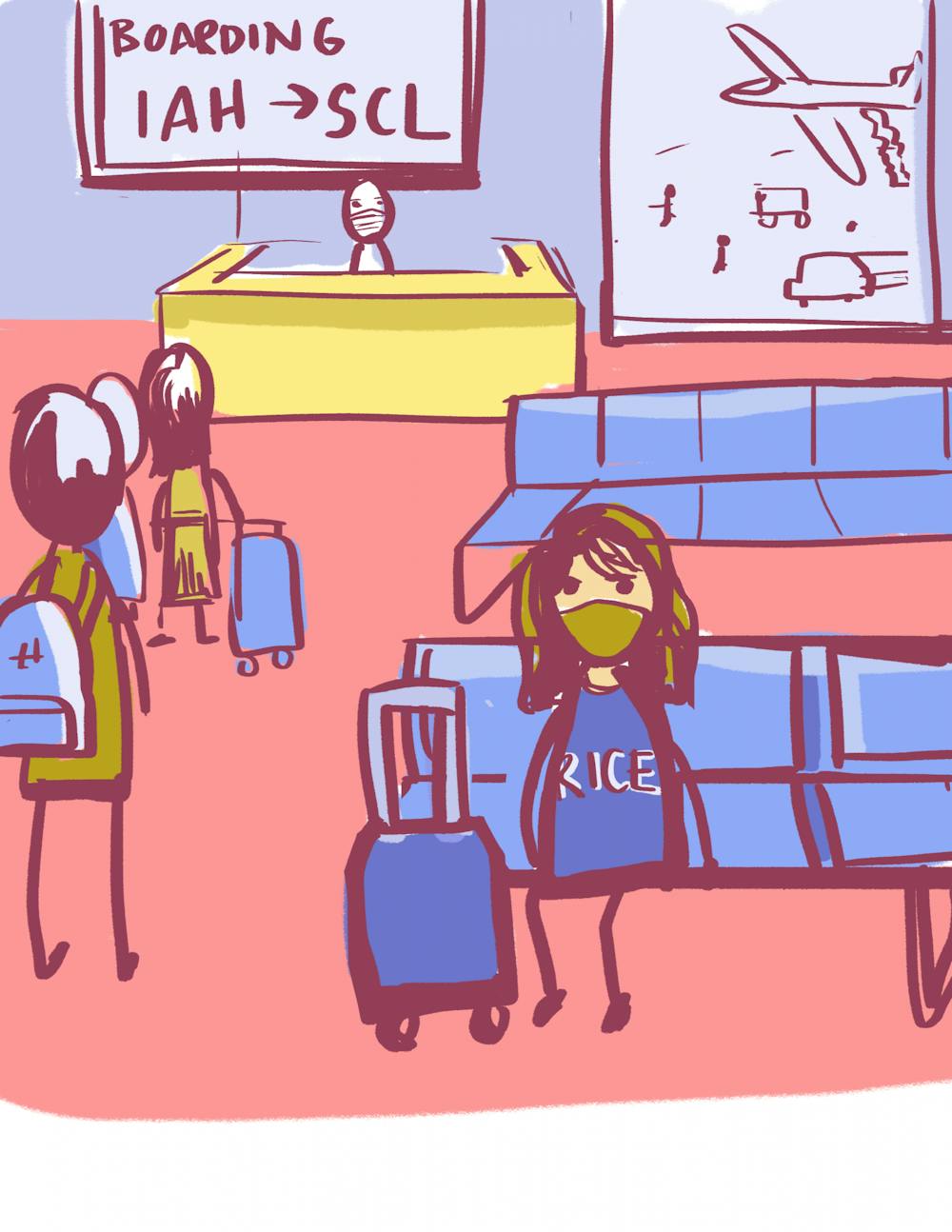Leaving the nest: Students discuss studying abroad in a pandemic

For as long as she could remember, Peggy Polydoros has wanted to study in Greece. Polydoros, a Will Rice College senior, is a Greek-American majoring in Ancient Mediterranean Civilizations, so living in Greece was a perfect match for her personal and professional interests, she said. But when the pandemic hit, her plans were disrupted — in the face of surging coronavirus cases and major uncertainty about what travel would look like, she had a tough decision to make about whether to study abroad.
“I had no idea what the trajectory of the pandemic would look like when I was considering my options last fall,” Polydoros said. “Ultimately, I decided I had to at least try to study abroad.”
Polydoros ended up going to Athens, Greece in the spring and summer of 2021, but her experience was not unaffected by the pandemic, she said. Travel was restricted in the beginning, so Polydoros couldn’t leave Athens, and many local events were canceled.
Study abroad has only just begun to return to normal, according to Beata Loch, director of the Study Abroad Office. While a few students successfully petitioned to study abroad in earlier semesters, the fall 2021 cohort was the first that Rice sent abroad after suspending international travel in Feb. 2020, Loch said. Currently, 19 students are studying abroad, all of whom are in Europe. In the spring, there will be 34 students, with the majority in Europe and a few in South America and Asia, according to Loch.
Loch said the pandemic-related restrictions still in place differ by program. In some programs, the in-country portion has been shortened to less than 90 days in order to get around issues of visa application backlogs at embassies. In others, students’ ability to travel on their own is limited. Most programs no longer include homestay, in which students live with local host families, and all have strict testing and vaccine requirements.
“Given the continued fluctuation of the number and severity of COVID cases globally, and the challenges inadequate vaccination levels present, countries keep having to adjust both their entry requirements and domestic policies to curb infections,” Loch said. “Health passes verifying full vaccination status as well as regular testing have become a must both for international travel and for everyday life in many countries.”
Catherine Hettler, a McMurtry College senior, studied at Seoul National University in South Korea in the fall 2020 semester. Originally, Rice canceled all study abroad programs for that semester, but Hettler was able to request special consideration to follow through with her plans.
“Honestly, it felt like a miracle that I was able to go at all, considering everything,” Hettler said.
In South Korea, Hettler lived in a dorm, explored the city and campus and went to a variety of museums and restaurants. Her classes and most social activities were held on Zoom, but exams were in person, and she was still able to meet other students and professors. Though the uncertainty and restrictions around her program could be stressful, the experience was still worthwhile, Hettler said.
“For me, the positives definitely outweighed any negatives, and ultimately it was a lot of fun and a lot of learning — both in the classroom and in terms of life experience,” Hettler said.
According to Polydoros, the coronavirus restrictions she faced had a silver lining: They helped her feel like a local. Since she couldn’t leave Athens, Polydoros would spend hours exploring different neighborhoods in the city and getting to know the people in her area. She even got to spend time with a friend from Rice who was studying remotely from his home in Athens. Polydoros said the whole experience helped her to feel connected with the city.
“Though I was limited to Athens in the spring, I ended up feeling even more like a local than I might have otherwise,” Polydoros said. “I got to know my neighborhood exceptionally well and made friends with local shop owners and my incredible professors.”
Emily Wolf, a Martel College junior, will study in Vienna, Austria next semester as part of a program on psychology and the social sciences. She said regulations and restrictions in Austria are still changing, which makes her nervous, but even with these changes she is still excited to go abroad.
“I’m expecting coronavirus to restrict my travel to other countries while abroad, but I still believe I could spend an entire semester in a foreign city and leave with plenty of things I have yet to do,” Wolf said.
For students thinking about studying abroad, the best way to prepare is to reach out to the study abroad office, according to Loch. The deadline for summer 2022 study abroad applications is March 15, although some programs are due earlier.
“Proper planning for a study abroad term is more important than ever,” Loch said. “We encourage all students to get in touch with our offices early to benefit from one-on-one advising.”
Polydoros said she would recommend study abroad to interested students, even amid uncertainties.
“I’m glad I took a calculated risk with careful precautions so I could study in Greece for five months,” Polydoros said. “It was an incredible experience that I will carry with me for the rest of my life.”
More from The Rice Thresher


Sree’s Tiffin feeds a community of cravings
Of all the common sicknesses Rice undergraduate students face, none is more widespread than homesickness. Trisha Rangi said she understands what it’s like to miss things that feel like home, and she decided to do something about it.

New student center to ‘complete’ central quad
Breezeways, arches and outdoor seating will abound at the Moody Center Complex for Student Life set to break ground May 8. The 75,000-square-foot complex was designed by architecture firm Olson Kundig and has an expected completion date of fall 2027.

Please note All comments are eligible for publication by The Rice Thresher.